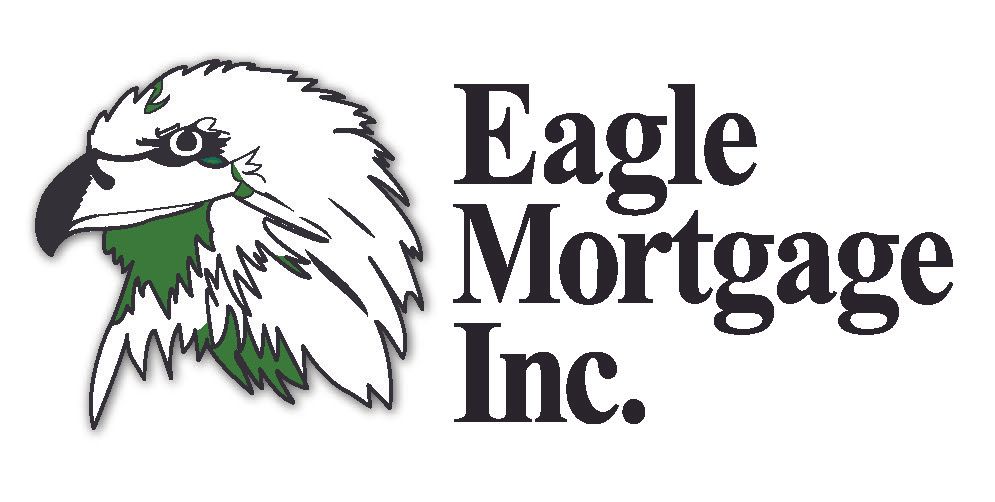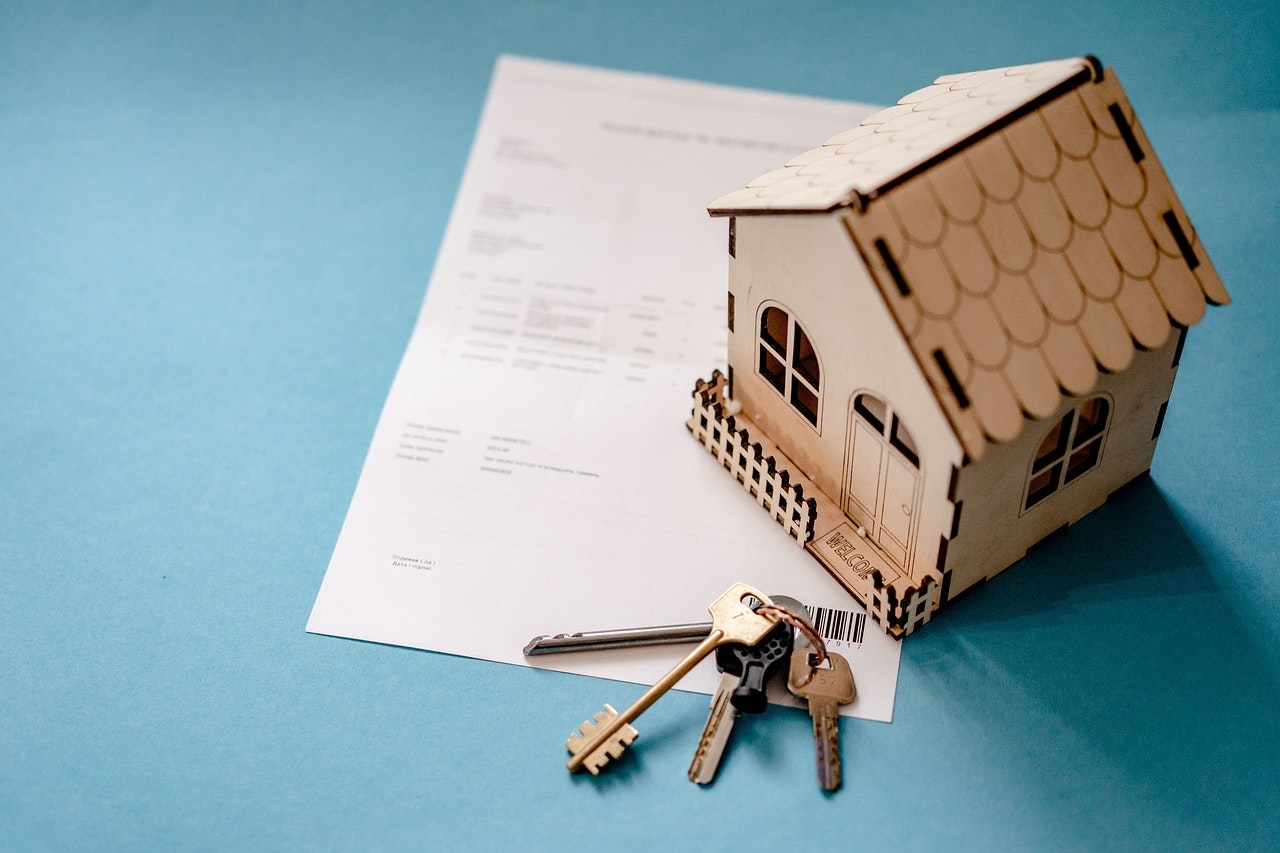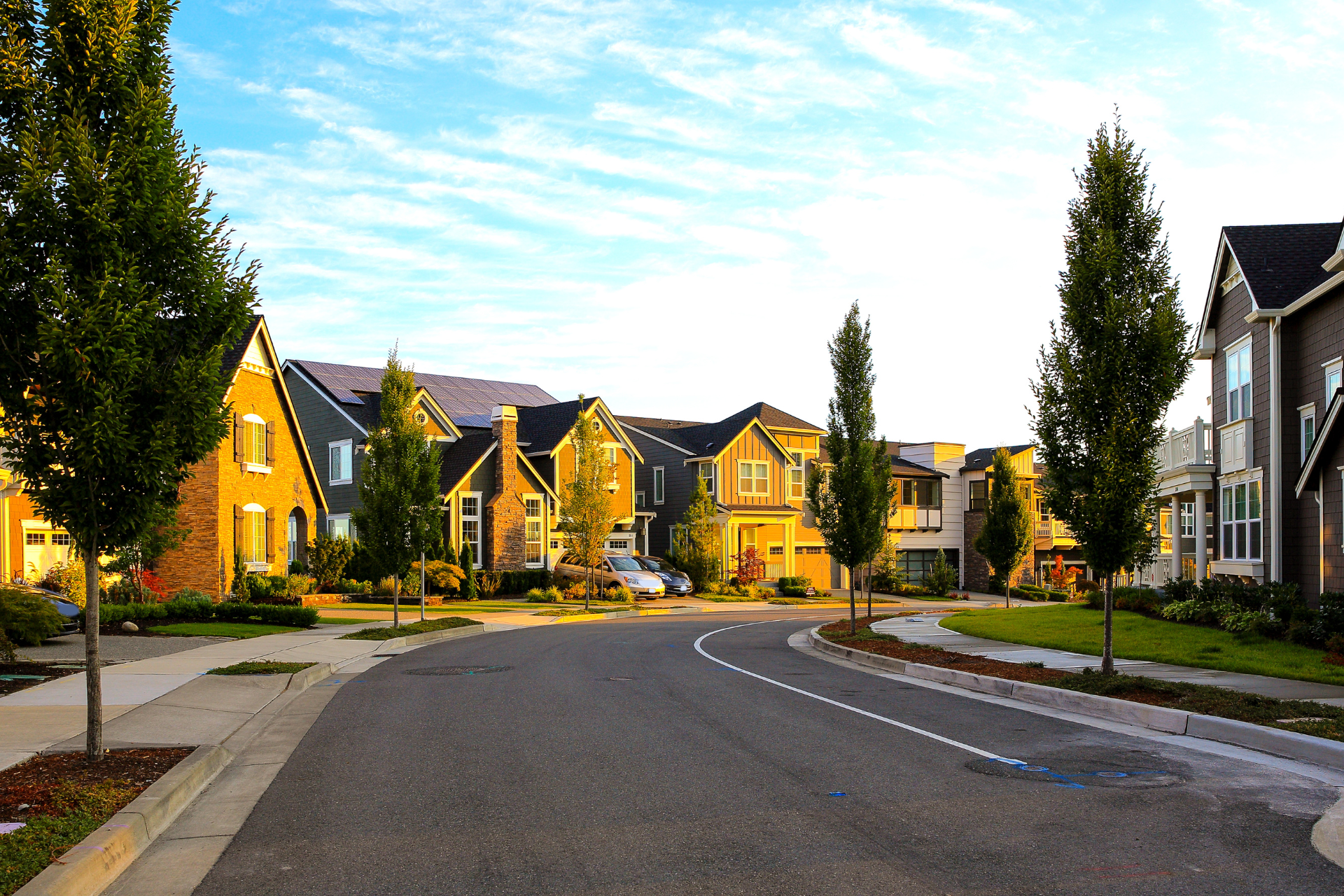Our Blog
Renting vs. Buying: Deciding What’s Right for You
Deciding whether to rent or buy a home is one of the biggest financial choices many people face. Each option comes with distinct advantages and drawbacks, influenced by your financial circumstances...
Read more
HELOC vs Reverse Mortgage: Choosing the Right Option
Leveraging home equity is a popular strategy for securing financial comfort or meeting financial needs in retirement. Making an informed decision between a Home Equity Line of Credit (HELOC) and a...
Read more
Fed's Policy Update: What It Means for Homebuyers
Key Update from the Federal ReserveAn important update emerged from the Federal Reserve’s latest policy meeting on March 19, 2025, which could have meaningful implications for your homeownership...
Read more
Spring into Homeownership: Essential Tips for Buyers
Why Spring is the Ideal Time for HomebuyingSpring brings warmth, renewal, and a flurry of activity in the real estate market. It's an appealing time for buyers, but also highly competitive. Being...
Read more
Understanding Mortgage Preapproval and Interest Rates
The home-buying process can be both exciting and overwhelming. One of the most critical steps in navigating the real estate market is obtaining mortgage preapproval. This foundational step not only...
Read more
Preparing Your Home for Spring
Refreshing Your Space with a Deep CleanSpring is the perfect season to refresh and rejuvenate your home. Start by tackling a deep clean of your living spaces. This includes dusting hard-to-reach...
Read more
Empowering Homeowners: Opportunities for Growth
Understanding Homeownership ChallengesHomeownership is a rewarding accomplishment, but it often comes with a unique set of challenges. Understanding these obstacles is key for homeowners seeking to...
Read more
Maximizing Your Home's Appeal Before Selling
First impressions play a crucial role in the home selling process. When potential buyers arrive, the initial look of your property can make or break their interest. Effectively attracting buyers...
Read more
Tax Perks of Homeownership: Maximize Your Benefits
Beyond the pride of owning a home, there are significant financial advantages that extend into tax season. Navigating these benefits may seem complex, but understanding can deliver substantial...
Read more
Evolution of Mortgage Rates: A Historical Perspective
The history of mortgage rates in the United States is a fascinating journey through economic changes, policy decisions, and market dynamics. Understanding how these rates have evolved provides...
Read more
2025 Residential Housing Market Projections
The residential housing market is set to undergo significant shifts as we approach 2025. For homeowners, sellers, real estate investors, and industry stakeholders, understanding the anticipated...
Read more
How the Economy Influences Mortgage Rates
Understanding the dynamics of mortgage rates is crucial for anyone looking to buy a home or refinance their existing mortgage. One of the most significant factors influencing these rates is the...
Read more
Unlock Savings: The Benefits of Refinancing Your Mortgage
Refinancing your mortgage can be a strategic move that offers several benefits, tailored to fit your financial goals. Here's a breakdown of why you might consider refinancing and how it can work to...
Read more
Mortgage Fun Facts and Surprising Statistics
Mortgages have become a cornerstone of homeownership in America, but how much do we really know about them? Whether you’re a seasoned homeowner or someone just stepping into the world of real...
Read more
Current Mortgage Rates and Housing Market Trends: What You Need to Know
The body content of your post goes here. To edit this text, click on it and delete this default text and start typing your own or paste your own from a different source....
Read more
Refinancing: The Smart Move for Financial Stability
If you're looking to consolidate debt, fund home improvements, or lower your interest rates, refinancing your mortgage can be a powerful financial tool. At Eagle Mortgage Inc., we specialize in...
Read more
Current Real Estate Market in Nebraska and Iowa: A 2024 Update
The real estate market in Nebraska and Iowa has shown dynamic changes in the past year. Whether you’re a real estate agent, a prospective homebuyer, or looking to refinance, staying informed is key...
Read more
Your Guide to Understanding Residential Properties
Understanding Residential Real Estate Residential real estate encompasses property specifically zoned and utilized for living purposes, contrasting starkly with...
Read more
Unlocking the Door to Your Dream Home with VA Loans: A Guide for Veterans and Military Families
At Eagle Mortgage, we're not just in the business of offering loans; we're in the business of making dreams come true. The journey to homeownership might seem daunting for the brave souls who've...
Read more
Opening Doors to Homeownership: How FHA Loans Make Dreams Possible
Dreaming of owning your home but feeling daunted by the hurdles? You're not alone. At Eagle Mortgage, we understand that stepping into homeownership is a monumental life decision, especially for...
Read more
Stepping Up to Your Dream Home: The Ins & Outs of Jumbo Loans
In the journey toward homeownership, some dreams are bigger than others. If your aspirations lead you toward a luxurious home or a property in a high-cost area, a jumbo loan might be your gateway....
Read more
View more
Our Favorie Recipes

Prep Time Cook Time Yield 15 min 15 min 4 servings Ingredients 1 tablespoon sesame oil 1/2 pound ground pork 1 tablespoon soy sauce 1 teaspoon ground ginger 1/2 teaspoon salt 1/4 teaspoon ground turmeric 1/4 teaspoon pepper 6 cups shredded cabbage (about 1 small head) 2 large carrots, shredded (about 2 cups) 4 ounces rice noodles 3 green onions, thinly sliced Additional soy sauce, optional Directions In a large cast-iron or other heavy skillet, heat oil over medium-high heat; cook and crumble pork until browned, 4-6 minutes. Stir in soy sauce and seasonings. Add cabbage and carrots; cook until vegetables are tender, stirring occasionally, 4-6 minutes longer. Advertisement Cook rice noodles according to package directions; drain and immediately add to pork mixture, tossing to combine. Sprinkle with green onions. If desired, serve with additional soy sauce. Nutrition Facts 1-1/2 cups: 302 calories, 12g fat (4g saturated fat), 38mg cholesterol, 652mg sodium, 33g carbohydrate (2g sugars, 4g fiber), 14g protein. Diabetic Exchanges: 2 medium-fat meat, 2 vegetable, 1-1/2 starch, 1/2 fat.

Prep Time: Cook Time: Total Time: Servings: 15 mins 15 mins 30 mins 8 Ingredients: - 2 quarts vegetable oil for frying - 8 (4 ounce) fillets cod - salt and pepper to taste - 1 cup all-purpose flour - 2 tablespoons garlic powder or to taste - 2 tablespoons paprika or to taste - 2 teaspoons salt or to taste - 2 teaspoons ground black pepper or to taste - 1 large egg, beaten - 1 (12 fluid ounce) can or bottle beer, or as needed Instructions: 1. Gather all ingredients. 2. Heat oil in a deep fryer to 365 degrees F (185 degrees C). Rinse cod fillets, pat dry, and season with salt and pepper. 3. Mix flour, garlic powder, paprika, salt, and pepper in a large bowl; add egg and stir well to combine. Gradually mix in enough beer to make a thin batter. 4. Dip cod fillets into the batter to coat. Carefully lower fillets, one at a time, into the hot oil. 5. Fry several fillets at a time, turning once, until cooked through and golden brown, about 2 minutes per side. 6. Drain on paper towels. Repeat to cook remaining fillets. Serve warm. Nutrition Facts (per serving) 448 Calories 30g Fat 23g Carbs 19g Protein

Prep Time Cook Time Yield 15 min 15 min 2 loaves (4 servings each) Ingredients: - 1 pound ground beef - 1/2 cup sour cream - 1/2 cup chopped onion - 1/4 teaspoon salt - 3 cups frozen chopped broccoli - 1/4 teaspoon pepper - 1 cup shredded part-skim mozzarella cheese - 2 tubes (8 ounces each) refrigerated crescent rolls Directions: 1) Preheat oven to 350°. In a large skillet, cook beef and onion over medium heat 6-8 minutes or until beef is no longer pink, breaking beef into crumbles; drain. Stir in broccoli, cheese, sour cream, salt and pepper; heat through. 2) Unroll 1 tube of crescent dough onto a greased baking sheet; form into a 12x8-in. rectangle, pressing perforations to seal. Spoon half the beef mixture lengthwise down center of rectangle. 3) On each long side, cut 1-in.-wide strips at an angle, from the edge to about 3 in. into the center. Fold 1 strip from each side over filling and pinch ends together; repeat. 4) Repeat with remaining ingredients to make second braid. Bake 15-20 minutes or until golden brown. Nutrition Facts 2 pieces : 396 calories, 23g fat (6g saturated fat), 48mg cholesterol, 644mg sodium, 29g carbohydrate (8g sugars, 2g fiber), 20g protein. recipe from Taste of Home - https://www.tasteofhome.com/recipes/broccoli-beef-braids/#RecipeCard

Prep time Cook time Serves 15 minutes 1 hour 2 minutes 4 to 6 Ingredients 3 cloves garlic 3 to 4 large lemons, divided 1 medium red bell pepper 2 pounds Yukon gold potatoes 1/4 cup plus 1 tablespoon olive oil, divided 1 tablespoon dried oregano 1 1/2 teaspoons kosher salt, divided 3/4 teaspoon freshly ground black pepper, divided 2 pounds bone-in, skin-on chicken thighs (4 to 6) 1/2 to 3/4 cup low-sodium chicken broth 1/2 medium bunch fresh dill or parsley, or a combination 3 ounces feta cheese (optional) Instructions 1) Arrange a rack in the middle of the oven and heat the oven to 400ºF. 2) Prepare the following, adding each to the same large bowl as you complete it: Mince 3 garlic cloves. Juice 2 to 3 of the large lemons until you have 1/3 cup. Cut 2 pounds Yukon gold potatoes into 1-inch wedges. Trim and cut 1 medium red bell pepper into 1-inch pieces. 3) Add 1/4 cup of the olive oil, 1 tablespoon dried oregano, 1 teaspoon of the kosher salt, and 1/2 teaspoon of the black pepper. Toss to evenly coat the potatoes and pepper. 4) Cut the remaining 1 large lemon into 6 wedges. Pat 2 pounds bone-in, skin-on chicken thighs dry with paper towels. Season all over with the remaining 1/2 teaspoon kosher salt and 1/4 teaspoon black pepper. 5) Heat the remaining 1 tablespoon olive oil in a large (at least 12 inch) cast iron or oven-safe skillet over medium-high heat until shimmering. Add the chicken skin-side down in a single layer. Cook until the fat is rendered and the skin is crisp and golden brown, about 12 minutes. Transfer the chicken to a plate skin-side up in a single layer (the chicken will not be cooked through at this point). 6) Add the potato mixture and any liquid at the bottom of the bowl to the skillet and stir to coat in the pan drippings. Arrange into an even layer. Pour 1/2 cup of the low-sodium chicken broth over the top. Nestle the lemon wedges and chicken skin-side up into the potatoes. Pour in any accumulated juices on the plate. 7) Transfer the skillet to the oven. Roast until the chicken is cooked through and the potatoes are tender and browned in spots, 40 to 50 minutes. If the skillet becomes too dry, add the remaining 1/4 cup low-sodium chicken broth. 8) Let the chicken and potatoes rest for 5 minutes. Meanwhile, coarsely chop the leaves and tender stems from 1/2 medium bunch fresh dill or parsley until you have about 1/2 cup. 9) Crumble 3 ounces feta cheese over the chicken if desired (about 1/3 cup). Sprinkle with the herbs. By Rachel Perlmutter

No-Bake Pumpkin Cheesecake Prep Time 30 mins Chill Time 8 hrs Total Time 8 hrs 30 mins Servings 10 to 12 servings Yield 1 (10-inch) cheesecake Ingredients For the gingersnap crust 2 cups (200g to 250g) gingersnap crumbs or graham cracker crumbs1/3 cup (67g) granulated sugar1/2 cup (113g) unsalted butter, melted For the pumpkin cheesecake filling 1 (15-ounce) can pumpkin purée1 cup (240ml) heavy cream2 (8-ounce) packages cream cheese1 cup (120g) powdered sugar2 tablespoons molasses1 teaspoon vanilla extract1 1/2 teaspoons ground cinnamon1 teaspoon ground ginger1/4 teaspoon ground nutmeg1/4 teaspoon ground cardamom1/8 teaspoon ground cloves For the optional toppings 1 cup heavy cream2 tablespoons powdered sugar1 teaspoon vanilla extract Caramel sauce Method Drain the pumpkin: Use a spatula to scrape the pumpkin purée out of the can and into a small bowl lined with a couple of layers of paper towels. Set aside while you prepare the crust and the whipped cream. The paper towels will draw some water out of the pumpkin purée for a thicker cheesecake filling. Make the no-bake crust: In a large bowl or food processor, combine the cookie crumbs, sugar, and melted butter with a silicone spatula until all the crumbs are evenly moistened and the mixture begins to clump together. Transfer the crumb mixture into a 9 or 10-inch springform pan. Use your hand or the bottom of a measuring cup to pack the crumbs into an even layer on the bottom of the pan and slightly up the sides. Compact the crust firmly to prevent it from being too crumbly. Transfer the pan to the freezer to chill while preparing the filling. Whip the cream: In the bowl of a stand mixer fitted with a whisk attachment, or in a large mixing bowl with a hand mixer, whip the heavy cream on medium-high speed until thickened and very stiff peaks form, about 1 to 2 minutes. Transfer the whipped cream to a small bowl and set aside. Whip the cream cheese: In the same bowl used for the whipped cream, whip the cream cheese on medium-high speed until completely smooth, about 4 minutes. Pause a few times to scrape the sides and bottom of the bowl with a spatula to ensure all of the cream cheese is whipped and smooth. Make the filling: To the whipped cream cheese, add the drained pumpkin purée, powdered sugar, molasses, vanilla, cinnamon, ginger, nutmeg, cardamom, and cloves. Mix on the lowest speed until most of the powdered sugar has been incorporated into the mixture, about 1 minute. Increase the speed to medium-high and whip for 2 to 3 minutes, or until the filling is creamy and perfectly smooth. Pause and scrape the bowl a few times during mixing to ensure the filling is free of any lumps. Fold in the whipped cream: Use a silicone spatula to gently fold the whipped cream into the pumpkin mixture. As you mix, rotate the bowl and use the spatula to scrape the sides and bottom of the bowl and stir in gentle, sweeping motions to prevent deflating the air in the whipped cream. Fill and chill: Remove the crust from the freezer and fill it with the pumpkin mixture. Use a small offset spatula, or the silicone spatula, to level and smooth the top of the cake. Cover the pan tightly with a layer of plastic. Try to avoid letting the plastic touch the surface of the cake. Refrigerate until thoroughly chilled and the filling has set, at least 8 hours, ideally 12 to 24 hours. Remove from the pan: When the cake is set and you’re ready to decorate and serve, run a small offset spatula or a butter knife around the edge of the cake. Remove the rim of the pan. Carefully slide the cake onto a serving plate, or serve it directly from the pan. Make the whipped cream topping (optional): In the bowl of a stand mixer fitted with a whisk attachment, or in a large mixing bowl with a hand mixer, whip the heavy cream, powdered sugar, and vanilla on medium-high speed until stiff peaks form, about 1 to 2 minutes. The cream should thicken, and when you pull the whisk out of the bowl, the peak should stand up. Transfer the whipped cream to a piping bag fitted with a large star tip. Pipe large rosettes around the top of the cake and drizzle the cake with caramel sauce, if using. Slice and serve. Leftover cheesecake can be stored covered in the refrigerator, covered, for up to 3 days.

1 5-6 lb. bone-in pork shoulder roast 6 cloves garlic 4 tsp. kosher salt 1 tbsp. brown sugar 2 tsp. ground mustard 3 tsp. ground black pepper 1 large yellow onion, thinly sliced 8 sprigs of thyme 1 c. apple cider TO SERVE: Dijon mustard 12 pretzel rolls, split and toasted Directions Trim the fat of the pork shoulder to about 1/4-inch thick. Cut 12 slits all over the pork. Slice each clove of garlic in half, lengthwise, and press 1 piece into each slit. Combine the salt, brown sugar, ground mustard, and black pepper in a small bowl. Rub all over the pork shoulder. Place fat cap side down in the insert of a slow cooker. Add the onions, thyme, and apple cider around the sides. Cover and cook on high for 6 hours, or low for 8 to 10 hours until pull-apart tender. Remove the sprigs of thyme. Using two forks, pull the pork into bite-sized pieces. Gently toss with the onions and juices in the slow cooker. Hold on warm for up to 4 hours while serving. To serve: Spread Dijon mustard on the insides of each pretzel roll. Top with pulled pork and onions. YIELDS: 6 - 8 serving(s) PREP TIME: 10 mins TOTAL TIME: 6 hrs 10 mins




























